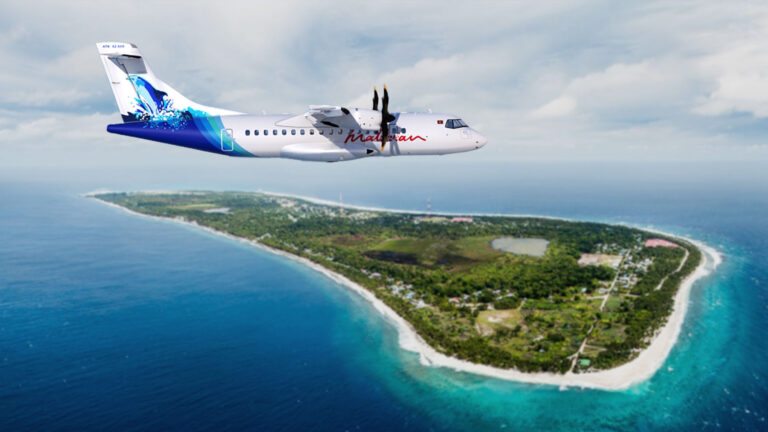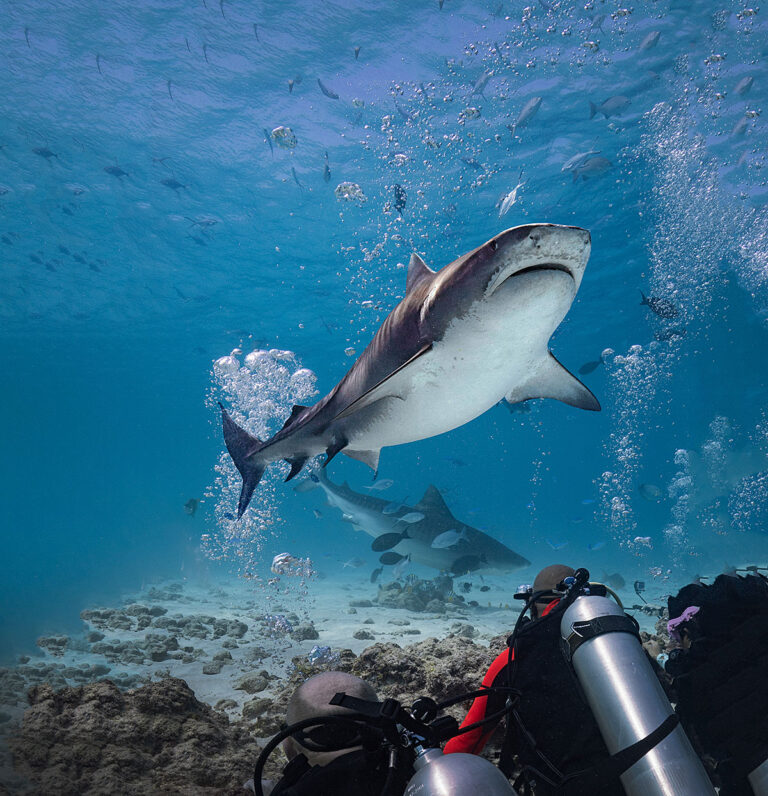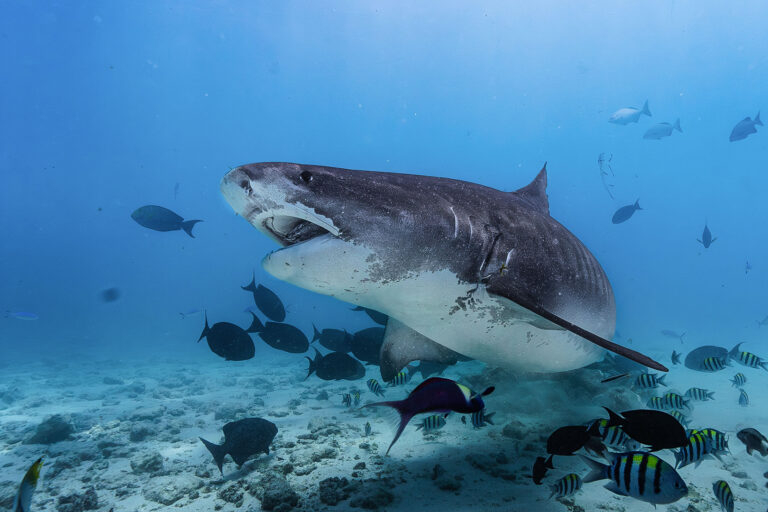The Fuvahmulah island
Fuvahmulah Island, nestled in the southern Maldives, is a unique and captivating destination known for its rich biodiversity and stunning natural beauty. Unlike other Maldivian islands, Fuvahmulah stands alone as a one-island atoll, offering a distinctive landscape that includes lush tropical vegetation, freshwater lakes, and the Maldives’ only beach break. Renowned for its vibrant marine life, the island is a haven for divers and surfers, providing thrilling encounters with various shark species and exhilarating waves. With its blend of cultural heritage, historical landmarks, and modern amenities, Fuvahmulah promises an unforgettable experience for every traveler.
Fuvahmulah History
Fuvahmulah Island, located in the southern Maldives, has a rich and intriguing history shaped by its geographical isolation and cultural transitions. Historically, the island was difficult to access due to its unique position and lack of a natural harbor, which contributed to its seclusion.
In its early history, Fuvahmulah was a center for Buddhism, as evidenced by the remains of a Buddhist stupa known as Havitta. This stupa, located in the Dhadimagu ward, signifies the island’s pre-Islamic past. The conversion to Islam in the 12th century marked a significant cultural shift, with the community eventually covering the stupa with earth and converting nearby temples into mosques. One of the first mosques built after this conversion was Gemmiskiy, constructed around 1300 using coral stones. It remains one of the oldest mosques in the Maldives.
Throughout its history, Fuvahmulah has faced challenges, including depopulation due to epidemics and political tensions during the United Suvadive Republic period (1959–1963). Despite these challenges, the island has maintained its cultural heritage, with historical sites like the Gen Miskit mosque and the Vasho-Veyo bath reflecting its rich past.
In recent history, the construction of a harbor and a domestic airport in the early 2000s and 2011, respectively, has opened Fuvahmulah to tourism and development, allowing more people to explore its unique history and natural beauty. Today, Fuvahmulah is celebrated for its vibrant culture, historical landmarks, and stunning natural environment, making it a fascinating destination for visitors interested in the Maldives’ diverse heritage.
Fuvahmulah Island, located in the southern Maldives, has a rich and intriguing history shaped by its geographical isolation and cultural transitions. Historically, the island was difficult to access due to its unique position and lack of a natural harbor, which contributed to its seclusion.
In its early history, Fuvahmulah was a center for Buddhism, as evidenced by the remains of a Buddhist stupa known as Havitta. This stupa, located in the Dhadimagu ward, signifies the island’s pre-Islamic past. The conversion to Islam in the 12th century marked a significant cultural shift, with the community eventually covering the stupa with earth and converting nearby temples into mosques. One of the first mosques built after this conversion was Gemmiskiy, constructed around 1300 using coral stones. It remains one of the oldest mosques in the Maldives.
Throughout its history, Fuvahmulah has faced challenges, including depopulation due to epidemics and political tensions during the United Suvadive Republic period (1959–1963). Despite these challenges, the island has maintained its cultural heritage, with historical sites like the Gen Miskit mosque and the Vasho-Veyo bath reflecting its rich past.
In recent history, the construction of a harbor and a domestic airport in the early 2000s and 2011, respectively, has opened Fuvahmulah to tourism and development, allowing more people to explore its unique history and natural beauty. Today, Fuvahmulah is celebrated for its vibrant culture, historical landmarks, and stunning natural environment, making it a fascinating destination for visitors interested in the Maldives’ diverse heritage.
Did you know?
- Unlike other islands in the archipelago, it stands alone without a surrounding lagoon, making it a unique geographical feature in the region.
- Fuvahmulah is renowned for its rich marine biodiversity, particularly its shark population. It’s one of the few places in the world where you can encounter tiger sharks year-round, along with other species like thresher sharks and hammerheads.
- The island is home to Havitta, the remnants of an ancient Buddhist stupa, which highlights Fuvahmulah’s pre-Islamic history. This site offers a rare glimpse into the island’s past before the widespread adoption of Islam in the Maldives.
- Fuvahmulah boasts two large freshwater lakes, Bandaara Kilhi and Dhadimagi Kilhi, which are unique in the Maldives. These lakes are surrounded by lush wetlands and are rich in biodiversity, providing a serene escape for nature lovers.
- The island has a rich cultural heritage, with historical mosques like Gemmiskiy and Hukuru Miskiy showcasing traditional Maldivian architecture. These sites reflect the island’s transition from Buddhism to Islam and are important cultural landmarks.
Facilities on Fuvahmulah Island
Fitness and Wellness
- Gym: Stay active during your visit with access to well-equipped gyms that cater to all your fitness needs.
- Spa Services: Relax and rejuvenate with a variety of spa treatments available on the island, offering a perfect way to unwind after a day of exploration.
Educational and Communication Services
- Library: Dive into a good book or research local history at the island’s library, a quiet retreat for book lovers.
- Post Office: Send postcards or packages home with ease using the local post office services.
Healthcare and Safety
- Hospital & Clinics: Fuvahmulah is equipped with a hospital and several clinics to provide medical care and emergency services.
- Pharmacy: Access to pharmacies ensures you can obtain any necessary medications during your stay.
- Police Station Services: The local police station is available to assist with any safety or security concerns.
Recreational Activities
- Surf School: Learn to surf or improve your skills with lessons from experienced instructors at the island’s surf school.
- Fishing Trips: Experience the thrill of big game fishing with organized trips that showcase the island’s rich marine life.
- Canoeing: Explore the island’s freshwater lakes and enjoy the serene surroundings with canoe rentals.
Transportation and Connectivity
- Motorbike and Bicycle Rental Service: Discover the island at your own pace with convenient motorbike and bicycle rentals.
- Banks and ATM Services: Financial services are readily available with banks and ATMs located throughout the island.
- Mobile Coverage and 5G Services: Stay connected with reliable mobile coverage and 5G services, ensuring you can keep in touch with loved ones or work remotely if needed.
More about Fuvahmulah
Quick links
About
Copyright© 2026 , Shark School Fuvahmulah. All rights reserved.




